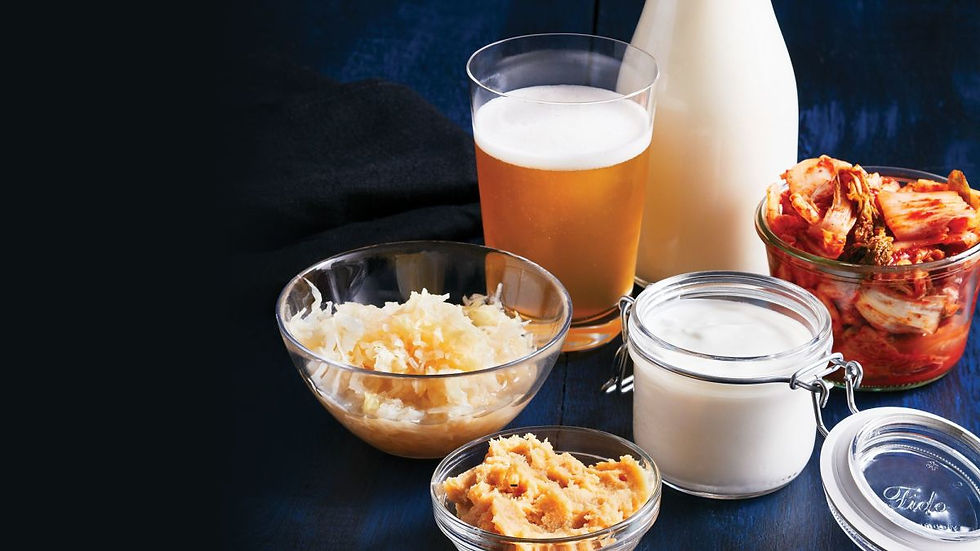Gut Health & Sports Performance
- GWTFNutrition

- Sep 17, 2020
- 2 min read

Your gut health is a two-way street when it comes to exercise.
Both the psychological & physiological benefits of exercise can have an effect on your gut microbiota- that's all the bacteria, fungi etc that live in your digestive tract. Taking part in endurance exercise for 6 weeks can improve the diversity of your gut microbes but it is important to keep up with exercising as one you stop exercising, your microbiome is likely to revert back to how it was before.

Increasing your microbial diversity has been linked to improved immunity, higher resistance to upper respiratory tract illness, and lower rates of obesity. This can also have a knock-on effect on digestion, your weight & mood as well as your risk of chronic disease.

On the flip side, the gut microbiota can have an influence on performance and having a microbiota which is diverse in it's make up may prove to be beneficial. It plays a key role in helping to control oxidative stress and inflammatory responses as well as improving metabolism and energy expenditure during exercise.
A healthy gut environment & improved immunity also means that you're less likely to miss out on training & taking part in exercise due to illness & gut issues.

So how can you improve your gut environment & sporting performance?
Include a wide range of foods in your diet which are rich in fibre, prebiotic, probiotics & polyphenols
Include a variety of different fruits, vegetables, whole grains, pulses, nuts & seeds in your diet. Don't just stick to the same few with every meal as this limits the different nutrients that the different gut microbes need to thrive on

Eat foods rich in polyphenols such as berries, dark chocolate & nuts as these encourage good microbes to grow
Go "fermental" & include some fermented foods & drinks in your diet. Natural yoghurt, sourdough bread, sauerkraut, tempeh (fermented soya beans), kefir, kimchi & kombucha all count.

Avoid consuming foods/drinks which have been highly processed as they lead to an increase in bad microbes & suppress the growth & vitality of the good microbes.

Include some beans, lentils, chickpeas, Jerusalem artichokes, onions, garlic, asparagus and leeks in your meals as these are all great sources of prebiotics; a type of dietary fibre which help feed the good bacteria in the gut.





Comments